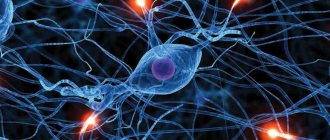Indeterminism is a methodological position, therefore, not everything in the world has a cause. This is a philosophical category that denies the objective causal relationship and cognitive essence of explanation in science. The basic laws of nature exist thanks to the principle of probability. Chance is an equal, fundamental entity with the help of which the evolutionary character of nature can be explained. Also, indeterminism can be, on the one hand, naturalistic, since it confirms the self-sufficiency of nature, and on the other hand, theological, since it explains the origin of nature from God.
The principle of indeterminism also occurs in physics; it is expressed in the causelessness of microprocesses, but quantum physics denies such a phenomenon, since it reflects them in a special statistical form.
In biology, the principle of indeterminism lies in identified causality and unambiguous predictability. Since the need has been revealed for the use of statistical methods to reflect the cause-and-effect relationships of actual processes, based on which it is impossible to make unambiguous and decisive predictions. Indeterminists talk about the bankruptcy of the principle of causality, in general. They refute the development of modern natural science and talk about the effectiveness of the dialectical-materialist theory, which recognizes objectivity and represents the diversity of causal relationships and forms of their reflection in people's minds. Many modern young physicists are becoming supporters of this worldview. Scientific progress will not be possible regardless of the principles of dialectical materialism, in particular the principle of causality.
Indeterminism is also often found with concepts such as determinism and agnosticism.
Determinism and indeterminism are philosophical positions regarding the objective causality of objects, objects and phenomena that have opposite definitions regarding this.
Agnosticism and indeterminism deny the possibility of knowing various phenomena under the pretext of the absence of objective, cause-and-effect patterns in social life, which are inherent only in nature.
Agnosticism and indeterminism have similar definitions because they both express the idea that it is impossible to fully know the true essence of man's knowledge of reality.
Explanation of the concept of "determinism"
“Determination” is a Latin word that is translated as “to determine,” “to limit,” “to separate.” Based on this explanation, the scientific direction is based on the separation of properties and characteristics of an object. This allows you to understand what influence it has on ongoing processes, how other objects are associated with it and determine its existence.
The concept of “determinism” in a philosophical view is the doctrine of causality and laws. This concept is a building block of the scientific method. Taking into account the main categories, scientific research is aimed at analyzing, determining the conditions and causes, relationships and laws of various changes that occur in society, the natural environment, and human thinking. In philosophy, determinism unites the concept of nature, which is deciphered in causality, chance or necessity.
What is indeterminism?
Indeterminism is a philosophical doctrine that denies either the objectivity of causality or its value in knowledge from the point of view of science. Representatives of the doctrine are opponents of determinism and believe that the human will is an autonomous force that is not subject to any laws or reasons.
The ideas of historical indeterminism began to spread in the second half of the 19th century in a number of philosophical schools (philosophy of life, neo-Kantianism). These concepts try to reveal the qualitative specificity of social cognition and the historical process, giving the leading importance to chance in them.
Scientific confirmation of these ideas in social cognition appears after the creation and development in the 19th-20th centuries of a statistical theory based on probability theory.
As a result of numerous studies in the field of social sciences, chance is recognized as an independent beginning of society, the constructive role of chance is affirmed as a factor of human freedom and the irreversibility of social changes, as well as the most important condition for the emergence of something new in the historical process.
Indeterminism can be theological or naturalistic. The first type denies the sufficient usefulness of nature in participating in human activities and the lives of other creatures; integrity and evolution are explained by the existence of God. Naturalistic indeterminism comes from the recognition of the natural as self-sufficient in the world system.
Also in the history of philosophy, 2 types of indeterminism have developed: objective and idealistic. The first type denies any interpretation of causality, both from the point of view of the person himself and from objective understanding. The idealistic direction considers regularity and causality to be relevant from a subjective point of view. At the same time, the objective attributes of determinism at the global level are denied.
Origin of the term "determinism"
The question of the cause of this or that phenomenon has always worried people. Over time, the concept of determinism was filled with new questions, developed, and enriched. But no scientific name was given for the constant questions about cause-and-effect relationships.
The word “determinism” was first recorded during the Middle Ages. It denoted a type of logical explanation of a concept, which is the antonym of the word “generalization.” Already in the 16th and 17th centuries, this word received a new meaning - conditionality. In the 17th century, determinism was the name given to causality and regularity. At the same time, the foundation is laid for the formation of mechanistic determinism. Since this period, the concept has been used in all branches of science to explain the dynamics, patterns, and universality of certain categories and objects.
There is another point of view - the opposite of the theory of causality, which is called indeterminism. Indeterministic supporters did not agree with the causal, natural conditionality of various phenomena in the natural environment and human society. The basic concepts of this direction: causeless randomness of phenomena, human free will, arbitrariness. The concept of indeterminism in philosophy was found in antiquity and modernity. The founder and successor of thoughts about chance and causelessness are the indeterminists: D. Hume, B. Russell, H. Reichenbach, and others.
Application of determinism in practice
Determinism is a basic approach that explains mental phenomena and the principle of functioning of the psyche.
The theory of Lev Semenovich Vygotsky well illustrates the application of the principle of determinism in psychology. She considers the social environment as the main source of human development. In the first years of life, the formation of a child’s personality is influenced not only by the processes of maturation of brain structures and the development of the whole organism, but also by cultural factors that shape behavior and thinking. According to the scientist, the physiological development and formation of a child’s thinking ability occurs in parallel with the influence of cultural and social factors. The source of development for the child is social interaction and dialogue with parents or other adults.
Formation of a deterministic view in the ancient period
Understanding the causality of certain phenomena appeared in the ancient period among ancient peoples. This was facilitated by the development of political and public life, especially in Ancient Greece. Views about causation were expressed by Democritus and Leucippus.
In ancient India, ideas of cause and effect were closely related to karma and rebirth. Here, one can observe the relationship between a person’s behavior and his quality of rebirth in a future life.
In Ancient China, Lao Tzu studied deterministic processes especially carefully. He called this process “Tao”. It exists constantly, in everything and everywhere. Tao represents inaction, does not depend on time, creates the universal unity of the world.
The formation of the deterministic direction originates in Ancient Greece. Ancient philosophers, in their works, examined in detail the laws of the world. It was called differently: “nike”, “logos”, “homeomerism”, “nous”, “atoms”, “chance”, “vortex”, four types of cause according to Aristotle.
Determinants influencing psychological development
The human psyche develops under the influence of various factors of an objective and subjective nature.
Objective
Objective factors in the development of the human psyche include:
- cultural and economic level of society;
- style of raising a child in the family, school;
- caring for a person;
- satisfying the need for closeness and belonging to a group;
- features of mentality.
Objective determinants also include genetic background, temperament and the presence of diseases.
Subjective
Subjective determinants of personality development are interconnected with objective ones and are the basis for self-development. Subjective factors include the conditions under which a person’s motivation, needs, consciousness and behavior style are formed.
Through the acquisition of knowledge and self-knowledge, the path to new opportunities lies.
Irina Sherbul
Unique determinism
This concept is not so much philosophical as it relates to physics and mechanics. Unambiguous determinism is the foundation of these areas of science. This concept denotes the influence of certain external factors and conditions on the initial state of the material system. This influence is rigid, unambiguous, it decides the further history of the existence of the material system. If something happens by chance, adherents of this trend argued, it is not a studied phenomenon - there is no chance as such.
One can successfully illustrate unambiguous determinism using the example of Newton's 2nd law. Also, the representation of the field in electrodynamics (Maxwell) led to an important conclusion - the state of the field in the present time does not depend on the surrounding situation at a distance. The law of short-range action works here - the field is influenced by the conditions that have developed in the vicinity of it.
The principle of unambiguous influence of causes is also visible in other theories of physics:
- mass (weight of an object) depends on the speed of movement;
- the passage of time and the curvature of space depend on the distribution of masses;
- the power of the gravitational field clearly affects the course of various processes;
- the movement of masses in space affects gravity.
In all these examples, the theory of unambiguous determination in philosophy works. But our world is multifaceted, not all processes strictly depend on each other. There are circumstances in which there is no clear relationship between processes and objects.
Indeterminism as the destruction of science
The definition of determinism needs to be refined. Quantum physics destroyed determinism in the previous, Laplacean understanding, as a theoretical possibility from the observed state of the world to retrospectively restore its past state and prospectively predict the future. But, having established indeterminism in the microworld, quantum physics did not put an end to determinism in all of natural science. Determinism is something more than a cause-and-effect chain of phenomena, conceived as a sequence of producing, or driving, causes, in which every subsequent state is determined by the previous one. In reality, the driving causes of phenomena are always naturally given and determined directly by the final cause or goal, and this saves the position of determinism, shaken by the probabilistic nature of the phenomena of the microworld, resulting from the wave nature of particles.
“The continuous causal chain of phenomena of classical physics is an illusion” (N. Bohr). " After that
does not mean
as a result of this
” (Latin proverb). Materialism believes that cause always precedes effect; but this principle is by no means general, for it is applicable only to moving (producing) causes and is incorrect for final causes. Its unconditional acceptance is a consequence of evolutionism, the idea that the world developed randomly and gradually, so that each previous stage was necessary for the subsequent one, was its cause. The depravity of such a view lies in the fact that it denies the rational structure of the world, because it ignores the primary purposefulness, purposefulness and principle of the conditions of existence inherent in the world (the correspondence of the parts to the whole and their mutual conditionality).
“The disappeared or at least greatly weakened determinism in quantum physics is being replaced by the laws of probability. However, the appeal to probability has a completely different meaning here than, say, in statistical mechanics. In classical theories, where probabilities appear, it is believed that elementary processes are subject to strict laws. Probabilities are introduced there to describe large-scale phenomena involving a large number of elementary processes. The situation is different in quantum physics, where probabilities are directly introduced to describe the course of elementary processes” (Louis de Broglie). Probability in the microcosm is a law directly given by God. Therefore, a case in the microworld has a constant probability and is not analogous to a case in the macroworld, where the probability of a random event depends on the constellation of many conditions, and we average it, replacing it with a statistical frequency determined from experience. In the microcosm, for example, a radium atom has the same probability of decay under all physical conditions. In the macrocosm, the probability, for example, of overshooting or undershooting the target of a gun projectile depends on many conditions: on its weight and shape, on the charge of gunpowder, on the direction and strength of the wind, on temperature and air pressure, etc. Randomness in the microworld is a law, and in the macroworld it is a confluence of natural circumstances.
However, elementary phenomena of the subatomic level, random in nature, do not affect the natural course of events in the macrocosm. The phenomena of the macroscopic world are separated and thereby protected from the probabilistic events of the microworld by an impenetrable barrier that eliminates everything that could influence the non-random course of macroscopic events provided for by the final goals, and allows through only what is in agreement with them. The effect of this barrier is manifested, for example, in the fact that mutations of chromosomal genes (events of the microworld) do not cause transmutation, or transformation of species (event of the macroworld), and therefore do not disturb the ecosystem. On the contrary, mutations serve to regulate the ecosystem, limiting the number of species at a high population density, which is in accordance with the purpose of the Creator. This is achieved by the fact that all mutations without exception are destructive. The accidents of the microworld (in fact, strictly natural, like everything in the world) do not affect the events of the macroworld and do not interfere with predestination (fatalism), i.e. do not exclude determinism in the phenomena of life. This is the very case where it is necessary to take into account the irreducibility of events at the highest level of the organization to events at the lower level and their qualitative difference.
Despite the highest achievements of science embodied in the physics of the microworld, I allow myself to criticize its creators, because I see the error of extrapolation and the insufficiency and even uselessness of knowledge of the microworld for understanding the basic science of natural science - the science of life and man. Biology and the humanities received nothing from the successes of atomic physics, unless, of course, we exclude that the scientific method was greatly enriched by experience. On the contrary, the arrogant intervention of authoritative luminaries of non-biological natural science (in the person of E. Schrödinger and others) into biology caused great harm to it due to their evolutionism, which rejected God the Creator and connected the microworld with the macrocosm by a cause-and-effect relationship, so that the origins of all natural events of higher levels began to be sought at the atomic and molecular level. Rejection of God undermines science, which is the comprehension of God's Providence in the structure of the world. Indeterminism as the opposition of chance to Providence spread to all natural science and practically destroyed science as such. As a result, the world is presented as full of chance, as a “chance that happened by chance,” maintained by selection as the most stable state. However, the phenomena of reduced fitness of species (allocentrism) in order to preserve the ecosystem from being overgrazed show that selection has no relation to the formation of species and ecosystems and that the state of the world is unstable: it is not selection that leads to the most stable state with a minimum of free energy, but the ubiquitous Second Law of Thermodynamics, destructive to any structures. I recall N. Bohr's warning to be afraid of the successes of a brilliant theory due to the risk of overestimating them.
If the microcosm had not been created as intelligently and strictly according to law as the whole world in general, would it have been possible to comprehend it as brilliantly as demonstrated by physics? This means, contrary to indeterminism, the microworld is also determined in the sense that it contains an intelligible harmony. The term indeterminism should be limited only to the subatomic microworld, and the rights of determinism should be restored in science, meaning by it the harmony of the world, making the world correct, natural and knowable, despite the indeterminism of the microworld and the free will of the Creator. After all, science still exists, despite its distortions and such gross errors as the extrapolation of indeterminism from the microworld to the rest of the world, while its successes, without determinism, would be impossible at all.
Due to the empty boasts of atheistic science, which advertises its dubious usefulness of achievements directly or through science fiction literature, its predictive ability regarding social phenomena and human history is greatly exaggerated. It is precisely in these most important questions of life that it is absent and concerns only technical achievements that are of little significance for such a prediction. Moreover, science’s overestimation of its ability to foresight is in irreconcilable contradiction with the fact that evolutionism, which is the foundation of atheistic science, leads to indeterminism, and therefore to the idea of the fundamental unpredictability of the world.
However, there is no basis for a fundamental denial of determinism. Even the Laplace form of determinism, which is far from applicable everywhere, is also suitable for astronomy, predicting eclipses and other constellations of celestial bodies with great accuracy. Even the microworld is determined in the sense that the probabilities in it are constant and not subject to the randomness of external conditions, and this constancy allows for the possibility of prediction. Another, in my opinion, basic form of determinism is not based at all on mechanics and not on driving causes, but on biology in the broad sense of the word and on final causes, or goals, and consists in the possibility of discovering God's Providence by observing life.
Examples abound. Cycles of biogenesis are regularly observed in geology. The biota (fauna and flora) of any geological formation is created suddenly (by explosion), experiences flourishing, aging and extinction. After it, a biota of a new formation is created, going through the same development cycle, etc. Each formation is characterized by its own specific biota, changes in the taxonomic groups of which, called phylocycles, make it possible to find out what stage of the life cycle a given group is in: whether it was created recently, is in its prime, or is aging and close to extinction. In the history of mankind there is also no progressive development, and there is a natural rise and fall of civilizations. Observations of such cycles lead to the discovery of laws and the possibility of prediction based on them. According to these empirical laws, humanity is on the verge of extinction, which is confirmed by data from world population dynamics and dates back to 2160.
By denying God, science, without realizing it, admits its own helplessness. Thus, she denies the laws of the macroworld independent of the microworld, which are the laws of biology given by the Creator specifically, in addition to the laws of the microworld, and forces herself to an exaggerated idea of the significance of chance in nature and to the denial of determinism. Although the microcosm is built on probabilities, its random influence on the providential and natural events of the macrocosm is even more excluded than the effect of small waves at sea on the course of a large ocean liner. The question arises: why is atheistic science needed, not only devoid of predictive value, but also denying the very possibility of prediction by accepting complete indeterminism? Indeterminism is the main flaw introduced into science by the revolution that Darwin's materialistic teaching produced in it.
Subscribe to our channel in Yandex.Zen!
Click “Subscribe to channel” to read “Tomorrow” in the Yandex feed
Description of probabilistic determinism
After unambiguous determinism, a theory of probabilistic causation of phenomena appeared. Its appearance coincides with the peak of development of theories about thermodynamics and statistical physics. The concept of hard causality, over time, showed its imperfection, especially when probabilistic methods and research theories appeared. Statistical patterns were primary; they became the beginning of models of the probabilistic world. The probabilistic method of study undermines the authority of unambiguous causality, the main idea of which is: external causes are omnipotent.
Principle
The problem of determinism occupies an important place in psychological science, since it directly affects issues of will, freedom of choice, and responsibility for one’s destiny.
Self-determination is the ability of a person to choose and have his own opinion. It is this skill that distinguishes people from other living beings.
The complexity and paradox of the issue often leads many scientists to move towards indeterminism.
Among Russian and foreign scientists, however, there are representatives of a strictly deterministic approach who substantiate the relevance of this teaching.
Authors
Outstanding psychologist and philosopher S.L. Rubinstein developed an activity approach in psychology, based on a general philosophical principle: external causes have an impact through internal conditions.
Thus, according to the scientist, an individual’s brain activity develops under the influence of external environmental conditions. As a result of a person’s relationship with the outside world, the nervous system is formed.
L.S. Vygotsky argued that there is a certainty of mental processes based on causality. Nothing can happen randomly, without any reason. Thus, the manifestation of human will is based on the principles of regularity and necessity.
According to K. Höfer , any event arises on the basis of previous phenomena and conditions, the laws of nature.
Determinism manifests itself not only in our understanding of science and objective phenomena, but also in the formation of ideas about life: freedom of choice, manifestation of will.
Foundations of modern determinism
Already in the 20th century, a new model of ideas about the universe began to form. In the mid-twentieth century, a new idea about synergetics appeared, and the physical and mathematical foundations of self-organization phenomena were developed. Modern determinism is a combination of individual ideas of all ideas about causality, starting from the ancient period. The new approach derives three categories of time dependence of cause and effect:
- the cause appears first, then the effect, strict sequence - this is the classical model;
- there is a gap between cause and effect, but they are closely connected by the conditions of short-range action, the final speed;
- cause and effect appear simultaneously: when the process of cause is just beginning, its effect immediately arises, then the cause is “extinguished” by its effect.
The reasons for our actions
A person cannot exist outside the environment, outside the context. In the process of its formation, it actively interacts with the environment, society, and culture. He, as a person, influences all this, but the environment also influences him.
Even as an adult, you are constantly changing under the influence of many environmental factors. Moreover, this has been proven even at the physiological level. By reading this article, your brain changes, new neural connections are formed in it. And if your brain changes, then you yourself change and, as a result, your actions and the decisions you make change.
For every change that happens in you, there is a reason.
Photo by Jakayla Toney from Pexels
Determinism is shared by:
- biological – related to survival;
- social – influence of other people;
- personality activity - we influence reality, and it influences us;
- self-determinism - we are able to influence ourselves.
The latter is important when considering determinism and free will.
Representatives of determinism and indeterminism
The development of determinism occurs from antiquity to the present day. During this time, many philosophers, physicists and scientists became devoted determinists, studying different categories of this view of the organization of the world. Among other representatives of determinism, the most significant contribution was made by the works of Montesquieu. This is the originator of the concept of geographical causality. In his works, he describes in detail the influence of climate on some characteristics of peoples.
A proponent of univocal determinism was Pierre-Simon Laplace. His ideas were the starting point for supporters and opponents of the world organization model. His concept was supported and complemented by L.I. Mechnikov, E. Huntington and others. The classification of forms of causality was determined by Mario Bunge. Actively developed the idea of cause and effect in physics: Maxwell, Lagrange, V.A.Fok.
Representatives of the modern view of determinism as a synegretic concept are V.P. Bransky, V.V. Mantatov, D. Blokhintsev, K. Nikolsky and others.
Determinism and indeterminism are two completely opposite philosophical movements in the field of the role and place of causality. Followers of determinism are confident in the objective nature of causality. Proponents of indeterminism, on the contrary, completely deny objective causation, and causation in general.
Deterministic approach
The deterministic approach recognizes the fact that events or phenomena occurring in a person’s life are due to some reasons.
In psychology, the deterministic approach can be expressed in the following forms:
| Form name | Description |
| System | The parts of any system are determined by the basic characteristics of the whole. |
| Feedback | The result of any action also affects the cause that led to these consequences. |
| Target | Causality and interconnectedness of actions implies the achievement of a certain goal as a result. |
| Statistical | A certain set of factors does not guarantee the similarity of consequences from the actions of the same person. |











